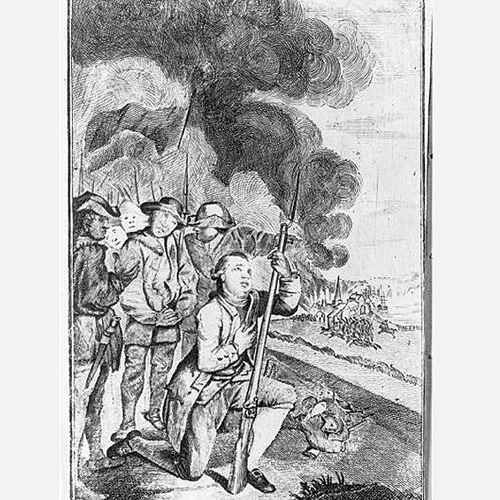Chisholm v. Georgia: State Sovereign Immunity Prior to the 11th Amendment
Historical
Chisholm v. Georgia, 2 U.S. 419 (1793) is one of the first important decisions issued by the U.S. Supreme Court. The case, however, is not widely known or studied in constitutional law classes because its main holding, which abrogated state sovereign immunity for suits by citizens of other states, was quickly superseded by the ratification of the Eleventh Amendment.
The Facts of the Case
In 1792, a South Carolina businessman, Alexander Chisholm, sued the state of Georgia in the U.S. Supreme Court. As the executor of the estate of Robert Farquhar, Chisholm alleged that the state owed him money for goods Farquhar provided during the American Revolution
In response to the suit, Georgia maintained that it was a sovereign state and, therefore, not subject to the authority of the federal courts. Accordingly, the key question before the justices was whether Georgia was subject to the jurisdiction of the federal courts.
The Court’s Decision
By a vote of 4-1, the Court answered in the affirmative, finding that a State is suable by citizens of another State. In support of the decision, the majority pointed to Article III, Section 2 of the Constitution, which states:
The judicial power shall extend to all cases in law and equity arising under the Constitution, the laws of the United States, or treaties made or which shall be made under their authority; to all cases affecting ambassadors or other public ministers and consuls; to all cases of admiralty and maritime jurisdiction; to controversies, to which the United States shall be a party; to controversies between two or more States and citizens of another State; between citizens of different States; between citizens of the same State claiming lands under grants of different States; and between a State and citizens thereof and foreign states, citizens or subjects.
According to the justices, the inclusion of “controversies between a State and citizens of another State” nullified the States’ sovereign immunity and authorized the federal courts to hear disputes between private citizens and States.
“The extension of the judiciary power of the United States to such controversies appears to me to be wise, because it is honest and because it is useful,” Chief Justice John Jay wrote in his opinion. “It is honest because it provides for doing justice without respect of persons, and, by securing individual citizens as well as States in their respective rights, performs the promise which every free government makes to every free citizen of equal justice and protection.”
The Chief Justice went on to explain that abrogating a state’s immunity is useful because it “brings into action and enforces this great and glorious principle — that the people are the sovereign of this country, and consequently that fellow citizens and joint sovereigns cannot be degraded by appearing with each other in their own courts to have their controversies determined”.
In 1795, the states responded to the Chisholm decision by ratifying the Eleventh Amendment, which provides: “The judicial power of the United States shall not be construed to extend to any suit in law or equity, commenced or prosecuted against one of the United States by citizens of another state, or by citizens or subjects of any foreign state.” The amendment ensured that individual states could no longer be defendants in federal court lawsuits prosecuted by citizens from other states.
Previous Articles
SCOTUS Decision in Bowe v. United States Is First of the 2026 Term
by DONALD SCARINCI on February 5, 2026
In Bowe v. United States, 607 U.S. ___ (2026), the U.S. Supreme Court held that Title 28 U.S.C. § ...
SCOTUS Rules State Can’t Immunize Parties from Federal Civil Liability
by DONALD SCARINCI on January 29, 2026
In John Doe v. Dynamic Physical Therapy, LLC, 607 U.S. ____ (2025) the U.S. Supreme Court held that...
Supreme Court to Address Racial Discrimination in Jury Selection
by DONALD SCARINCI onWhile the U.S. Supreme Court has concluded oral arguments for the year, it continues to add cases t...
The Amendments
-
Amendment1
- Establishment ClauseFree Exercise Clause
- Freedom of Speech
- Freedoms of Press
- Freedom of Assembly, and Petitition
-
Amendment2
- The Right to Bear Arms
-
Amendment4
- Unreasonable Searches and Seizures
-
Amendment5
- Due Process
- Eminent Domain
- Rights of Criminal Defendants
Preamble to the Bill of Rights
Congress of the United States begun and held at the City of New-York, on Wednesday the fourth of March, one thousand seven hundred and eighty nine.
THE Conventions of a number of the States, having at the time of their adopting the Constitution, expressed a desire, in order to prevent misconstruction or abuse of its powers, that further declaratory and restrictive clauses should be added: And as extending the ground of public confidence in the Government, will best ensure the beneficent ends of its institution.





